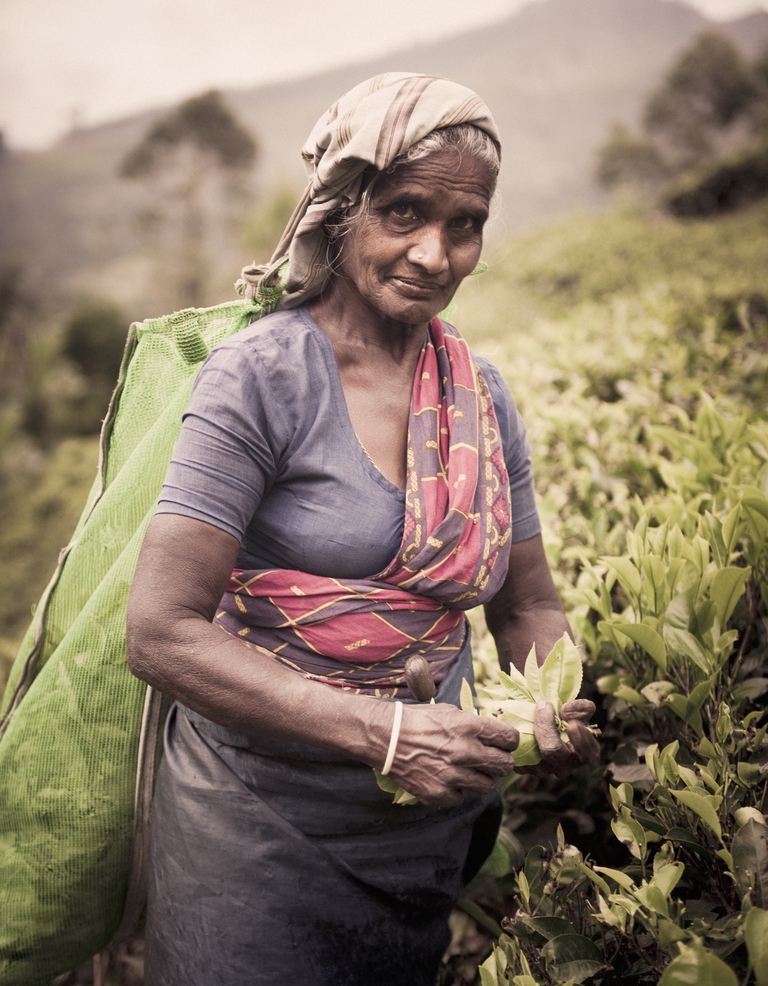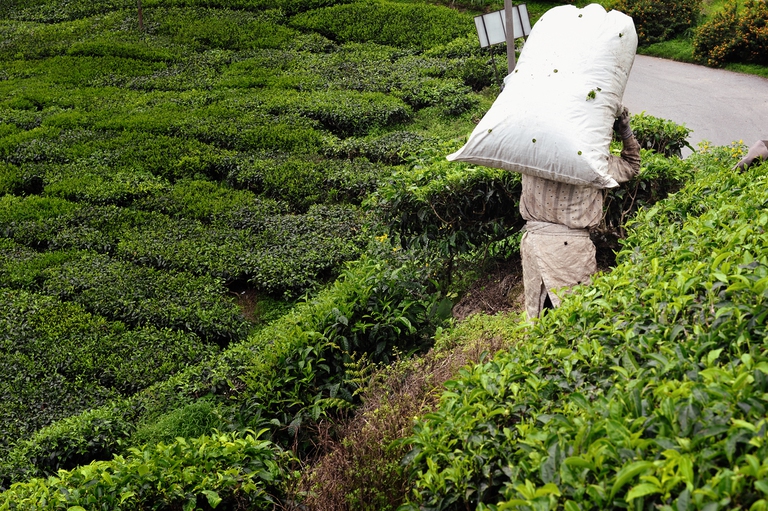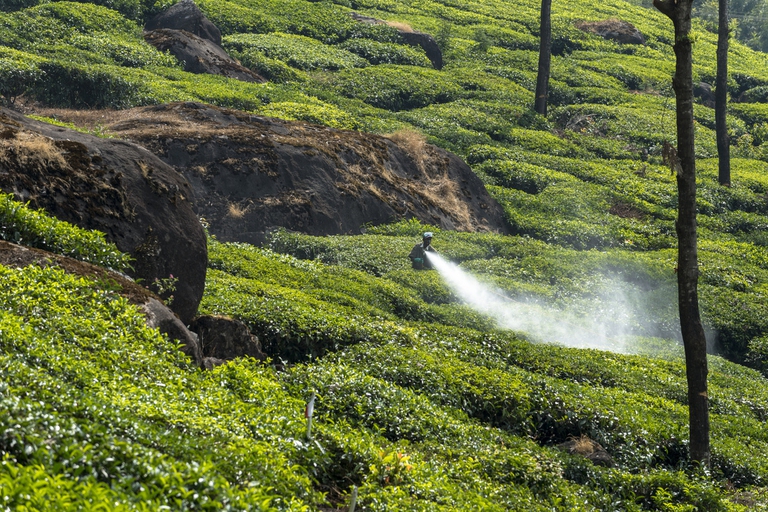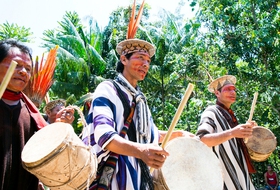
Costa Rica celebrated its first same-sex marriage when two women, Alexandra Quiros and Dunia Araya, celebrated their wedding: an “extraordinary moment”.
Tea production in India, second only to China’s in the world, provides employment to more than 3.5 million workers and accounts for more than 31 per cent of the global market. Working conditions on tea plantations have historically been degrading and dangerous (as exemplified in the 2015 BBC documentary, The Real Cost of A Cuppa). In response to
Tea production in India, second only to China’s in the world, provides employment to more than 3.5 million workers and accounts for more than 31 per cent of the global market. Working conditions on tea plantations have historically been degrading and dangerous (as exemplified in the 2015 BBC documentary, The Real Cost of A Cuppa).
In response to these concerns companies are adhering to independent and stringent sustainability certifications such as Rainforest Alliance (RA). Unilever, one of the country’s top producers and the largest tea company globally, plays a key role in driving the market for certification after having committed to sourcing all of its tea products from RA-certified farms by 2020. Yet a recent study highlights violations of national labour laws even on certified tea estates.
India-based research provider Glocal Research and human rights organisation India Committee of the Netherlands conducted follow-up research to the 2011 report Certified Unilever Tea – Small Cup, Big Difference?. The latter investigated working conditions on eight large RA-certified tea estates (all supplying to Unilever), highlighting several issues of systemic non-compliance to these standards by all tea estates.
In particular, violations were found regarding casualisation (contractualisation) and unequal benefits for contract and permanent workers, hampering of freedom of association, and the lack of personal protection equipment. The follow-up study, Certified Unilever Tea – A Cup Half Empty, conducted in 2016, focuses on these three issues in two Indian tea estates in the Niligiris, in Tamil Nadu state.
Although the situation for casual (contract) workers has improved in terms of provision of medical and basic educational facilities since 2011, they still don’t receive the same benefits as permanent workers. These include not receiving a contribution to their children’s school fees, provident funds, leave benefits, crèche facilities or other social security benefits. This violates the Plantation Act of 1951, which states that all workers, whether temporary or permanent, should be treated equally.
Further, it takes a minimum of two to three years for tea estates to provide workers permanent status, which is also in violation of contract labour law.
The study reports that overtime wages are illegally calculated: during peak season, half of labourers reported working more than 10 hours a day for 6 days a week with reduced rest hours. These hours of overtime don’t appear in official estate records, as overtime wage isn’t registered and is disguised as “incentive payment”. This means that workers don’t receive extra pay for every extra kilo picked over the daily target. Thus overtime work hours, workload and overtime compensation aren’t in compliance with legal requirements and the RA’s own Sustainable Agriculture Standard.
The use of personalised protection equipment (such as gloves, plastic aprons, overcoats, shoes and gear masks) still hasn’t become mandatory for chemical applications in the estates. Chemical handlers are mostly migrant workers, who are particularly vulnerable due to their illiteracy. Training and other information on occupational health and safety and sustainability standards are given mostly in the local language, Tamil, which they don’t necessarily understand.
The restrictive and selective practices of collective bargaining observed in the first report were also observed in the most recent one. Existing trade unions aren’t very well known to workers and haven’t contributed much to improving living conditions. Some workers reported that they’re not free to choose any union, but can only join one supported by management. Thus workers can’t fulfil their right to freely associate with unions of their choice and bargain collectively.
We recognize that progress in the Indian tea industry is being made but there is more to be done and we are fully engaged with our suppliers and partners such as Rainforest Alliance to improve labor, safety and housing standards … From our experience, it is only through open dialogue with all stakeholders, that we can come together to open a new chapter in the transformation of the tea industry in India.
Although numerous improvements have been reported comparing the 2011 and 2016 studies, supply chain issues in the Indian tea industry have a long way to go to adhere to international sustainability standards. More stringent due diligence should be conducted to investigate these, and stricter audits should be conducted to ensure that standards set in paper are also met in practice.
India is infamous for poor monitoring and enforcement of laws and standards. Especially in circumstances in which governments and civil society don’t take a strong stand for labour rights, it is the prerogative of corporations to ensure that these are upheld.
Siamo anche su WhatsApp. Segui il canale ufficiale LifeGate per restare aggiornata, aggiornato sulle ultime notizie e sulle nostre attività.
![]()
Quest'opera è distribuita con Licenza Creative Commons Attribuzione - Non commerciale - Non opere derivate 4.0 Internazionale.
Costa Rica celebrated its first same-sex marriage when two women, Alexandra Quiros and Dunia Araya, celebrated their wedding: an “extraordinary moment”.
KBK is the short form referring to the region comprising the Kalahandi, Bolangir and Koraput districts of India’s eastern state of Odisha. News on acute poverty leading to child-selling and starvation deaths in the region prompted Prime Minister Rajiv Gandhi to visit these districts in the 1980s and inaugurate several poverty alleviation schemes. None of
Disasters caused by climate change bring many Indian families to their knees, reaching extreme poverty levels. Condition that leads mothers and fathers to put their children in human traffickers’ hands, making them work illegally or forcing them in the prostitution racket. This dramatic situation has been revealed by the 2014 Nobel Peace Prize Kailash Satyarthi,
On top of a 2.4 million dollar compensation, the indigenous Ashaninka people will receive an official apology from the companies who deforested their lands in the 1980s.
From Italy to the United States, workers in the logistics and delivery sectors are protesting to demand better sanitary conditions to protect themselves from Covid-19.
The pandemic and its restrictions are affecting everyone, without exceptions. However factors like housing, income inequalities, gender, access to technology and working conditions are influencing how people experience the health crisis.
In the midst of India’s coronavirus lockdown, two dozen people lost their lives in a desperate bid to return home: migrant labourers forced to leave the cities where they worked once starvation began knocking at their doors.
Apple, Dell, Microsoft and Tesla are among the tech companies named in a lawsuit brought in the US by the families of children killed and maimed in cobalt mining activities in the Democratic Republic of Congo.
We, the people is Survival’s 2020 calendar, which features the winners of the photography contest showcasing images of the world’s indigenous peoples.










